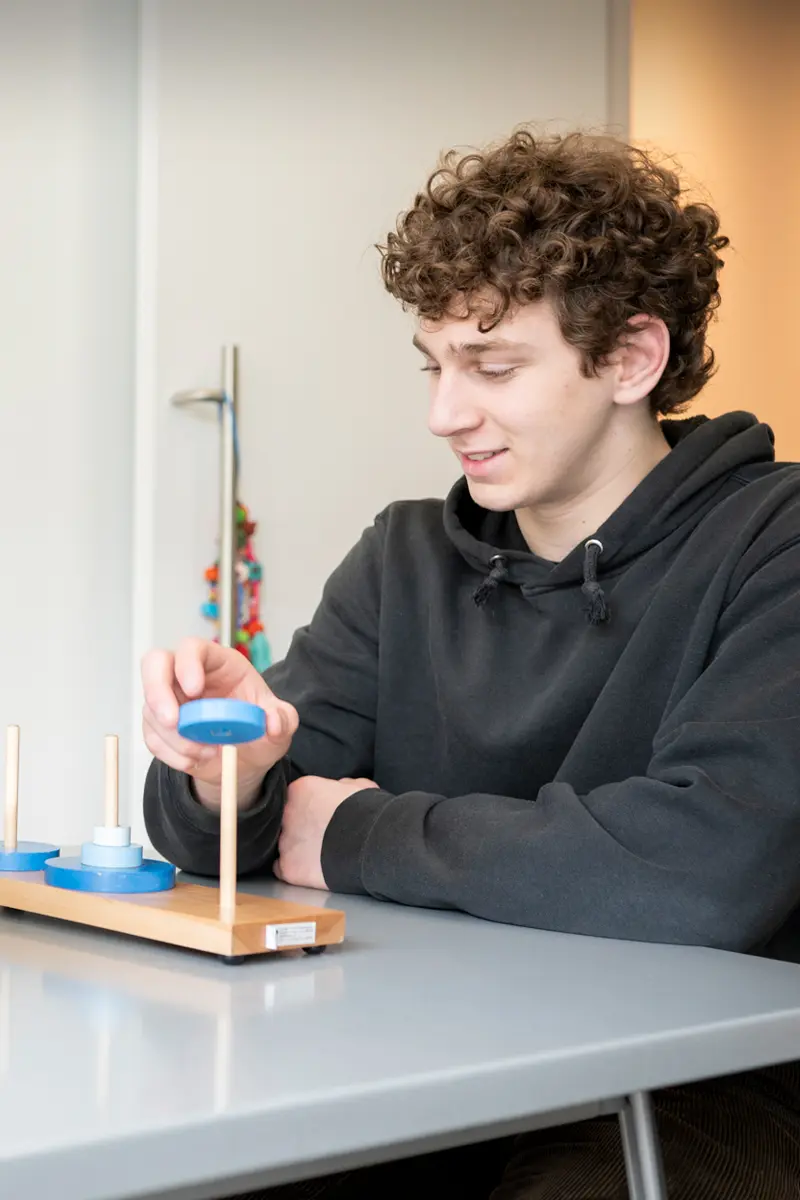What is ADHD?
ADHD is a lifelong neurodevelopmental condition that affects how people manage attention, effort, behaviour, emotions, and time. These challenges are rooted in executive functioning—the brain’s self-management system.
According to The Centre for ADHD Awareness Canada, ADHD is one of the most common neurodevelopmental disorders in Canada, affecting 5-7% of children.
Types of ADHD
The DSM-5, the diagnostic manual used by psychologists and physicians, describes three main types of ADHD:
- Inattentive – trouble focusing, organizing, and following through
- Hyperactive-Impulsive – restlessness, fidgeting, and interrupting others
- Combined – a mix of inattentive and hyperactive-impulsive traits
In reality, ADHD is a more complex condition. Symptoms can shift with age and setting—at home, school, or with friends. Some individuals may not appear hyperactive but struggle with motivation, time management, or emotional regulation.
ADHD symptoms in kids, teens, and young adults
ADHD presents differently in everyone and can evolve over time. It might look like distractibility, restlessness, difficulty making and sustaining friendships, emotional outbursts, trouble managing schoolwork and responsibilities, or challenges with initiating and maintaining focus on tasks.
ADHD assessments
There are multiple ways to assess for ADHD. The right ADHD assessment type and method depends on your child’s symptoms, needs and any other areas of concern.
Primary Care Provider (family doctor or pediatrician) Assessment
- Best for individuals with clear ADHD symptoms and no concerns about learning, mental health, or other developmental issues
- Typically based on questionnaires completed by parents and a teacher
- Cost is covered by OHIP
ADHD Assessment Conducted by a Psychologist
- More in-depth assessment using clinical interviews, questionnaires, and standardized measures
- Will capture harder-to-see presentations of ADHD
- You will receive a tailored report and engage in a feedback session that helps you to better understand the results of the assessment and your child’s ADHD (if diagnosed)
- Ideal if you are looking to assess your child for ADHD and do not have other cognitive, academic or emotional concerns
- This assessment is fee-for-service
Psycho-Educational Assessment
- A comprehensive assessment that will assess for ADHD as well as look at your child’s learning, emotional and social profile, helping you, your child, and their school gain insight into their areas of strength and need
- Recommended if you have additional concerns around your child’s learning, emotional regulation, or if they have a more complex developmental profile
- This assessment is fee-for-service.
Childhood and adolescent ADHD treatment and therapy
Recommended treatments and therapy for ADHD depend on your child’s unique profile and your treatment goals. Therapy can help your child develop skills in emotional regulation, organization, and managing daily routines, while also building resilience and confidence. Effective support often includes a combination of strategies and therapies tailored to your child’s needs.
ADHD medication for children and adolescents
ADHD medications, which are a common ADHD treatment, are designed to help manage symptoms like inattention, impulsivity, and emotional dysregulation by supporting the brain’s natural chemistry.
People with ADHD often have lower levels of certain neurotransmitters, which play key roles in areas like attention, motivation, and organization and planning. When these levels are imbalanced, it can be harder for children to focus, control impulses, and manage emotions. There are a number of different medications that can help manage these imbalances.
ADHD and executive functioning
ADHD is understood as a disorder of executive functioning. These brain-based skills help individuals plan, prioritize, manage emotions, and get things done. When these systems are underdeveloped, daily tasks can feel overwhelming.
Looking for support for your ADHDer? We can help.
Get SupportEmotional regulation in children with ADHD
Emotional dysregulation is a core feature of ADHD. Kids with ADHD often experience intense emotions and may struggle to manage feelings such as frustration, disappointment, and anxiety. These challenges are linked to deficits in executive functioning, particularly in areas responsible for emotional control and self-regulation.
Occupational therapists and child psychologists can help children and teens better understand and manage their emotions.
ADHD and social communication
ADHD can make social interactions more challenging. People who struggle with social communication may have difficulty reading social cues, navigating unstructured play, or expressing themselves clearly in social settings. These difficulties often stem from challenges with impulse control, emotional regulation, flexible thinking, and language—skills closely tied to executive functioning.
Speech-language pathologists (SLPs) trained in social communication work with children to build the foundational skills that support meaningful social connection.
ADHD strategies
There is no one-size-fits-all approach to supporting a child with ADHD. Strategies are most helpful when they’re personalized to a child’s strengths, challenges, and environment. Often, it takes time, trial and error, and support from professionals to determine what works best.
Commonly asked questions
What age can ADHD be diagnosed?
Symptoms may be noticed as early as preschool, but diagnosis typically becomes clearer once school demands increase.
Is ADHD a form of Autism?
No, though they can co-occur. ADHD and Autism are distinct neurodevelopmental conditions with overlapping traits in some individuals.
What does an ADHD meltdown look like?
Meltdowns in kids with ADHD often stem from difficulty with emotional regulation. They may escalate quickly and take longer to resolve than typical frustration responses.










